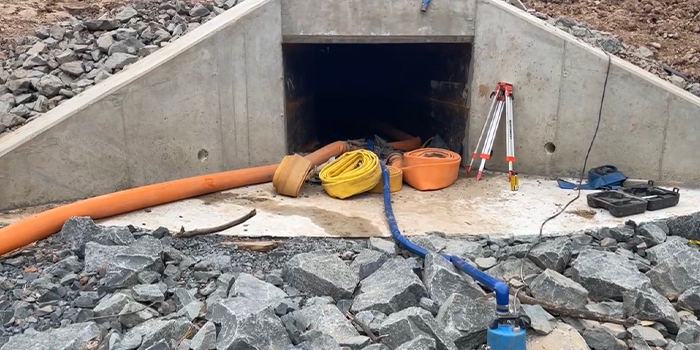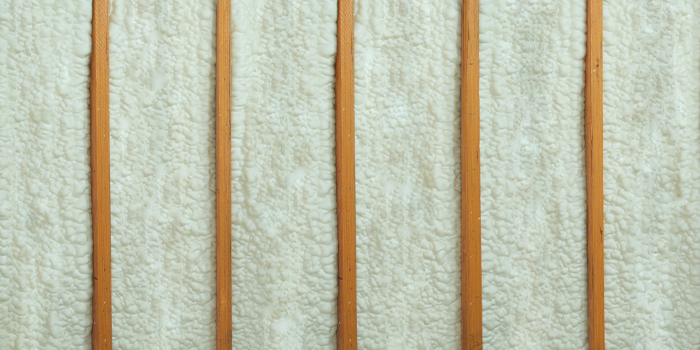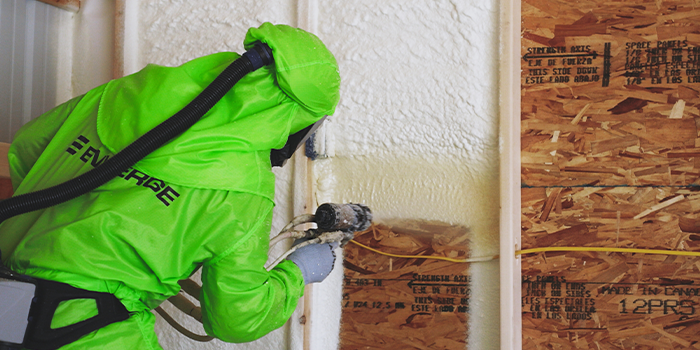
New Jersey Turnpike Authority Rescuing Roads and Bridges Using NCFI's Terra-Lok™ Engineered Polyurethane
HOUSTON, TX – October 22, 2022 – As part of the New Jersey Turnpike Authority’s (NJTA) $1 Billion Capital Projects Campaign “to boost mobility and improve safety for generations to come,” box culverts are suddenly big business.
“Most people take them for granted,” says Douglas Laubshire Sr., a partner with Expert Concrete Restoration and Repair (ECRR), a waterproof and repair contractor in Tri-State area. “These concrete structures are everywhere, especially in areas with bodies of water, moving water, high rainfall, and where roadways pass over those water bodies. They allow for creeks to flow under roadways, water passages to be maintained between bodies of water, and provide support for roadways. You don’t notice them until they fail and the road sinks or is flooded.”
If a culvert shows signs of failure, and the vital structures they support are at risk DOTs swing into action. When the NJTA’s maintenance contractor discovered trouble with a culvert in Woodbridge, NJ they called in Laubshire’s company, ECRR.
Laubshire explains, “A section of the turnpike was sinking around a box culvert, so we got the call to inspect it, determine if it might be the cause, and present a repair solution. The 18-foot-long concrete box culvert was experiencing severe soil infiltration. As happens with concrete, cracks appear over time along the walls and were allowing water and the support soils around the culvert and underneath the roadway to seep in. There was significant soil loss, and the soil beneath the roadway had weakened and was causing it to settle.” To repair the culvert, ECRR used an innovative geotechnical polyurethane product called Terra-Lok by the U.S company NCFI Polyurethanes.
Josh Burcaw, EVP of NCFI Polyurethanes’ Geotechnical Division, says, “Remediating soil loss around culverts is a twofold problem. First, the voids and cracks must be fully sealed to prevent future intrusion into the culvert. The second issue is to rehabilitate the weak soils around the culvert and below the roadway, or whatever structure is being supported to reestablish the soil and culvert’s load-bearing capacity. Terra-Lok, does both in a single application.”
Terra-Lok is a single-component polyurethane system formulated for permeating loose soils and filling voids, making it ideal for culvert rehabilitation. When injected into the soil at depth, Terra-Lok permeates the area in a gooey liquid state allowing for full saturation of the soil and the filling of any voids, gaps, pockets, or seams. Terra-Lok reacts to exposure to the moisture content of the soil, expands up to 25 times its initial liquid volume, then cures in place to become monolithic. The result is a densified soil base with void areas filled, including cracks, crevices, and separated joints.
The culvert was 16-feet below the surface, so ECRR had to inject Terr-Lok on a two-foot grid pattern at eight-foot depths, for full soil permeation to stabilize the culvert, roadway, and soil between.
According to Laubshire, “It took us three days to install, and when we finished, the polymer had sealed the cracks around the perimeter of the culvert and stabilized the soil. The project was a complete success and helped the NJTA avoid weeks of repairs and delays, and saved tens of thousands of dollars with alternative methods.”
About NCFI
NCFI Polyurethanes got its start in 1964 and manufactures polyurethane foam systems for spray foam insulation (SPF), geotechnical, agricultural, SPF roofing, marine flotation, aerospace, molding, and many other uses. The company also offers a complete line of flexible foams for furniture, transportation, bedding, carpet underlay, and packaging. NCFI also has manufacturing plants in NC, GA, and TX. NCFI belongs to the Barnhardt Manufacturing Company, Inc. family of companies. To learn more about NCFI please visit www.NCFI.com













